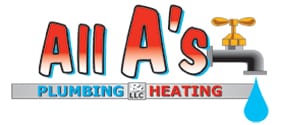Air-to-Water Heat Pump Systems are a cost-effective, energy-efficient, and environmentally friendly method of providing ambient temperature control. In fact, The U.S. Environmental Protection Agency (EPA) recognized air-to-water heat pumps as the recipient of the ENERGY STAR Emerging Technology Award in 2019. While some cities are banning natural gas in new buildings, an air-to-water heat pump is a great alternative.
What Are Air-to-Water Heat Pump Systems
Air-to-water pump systems rely on two things, both of which are in their name: air and water. No natural gas is involved in this system. Instead, the pump takes heat present in outside air utilizing a refrigerant. It transports this fluid back inside a home, where it provides radiant heat through a process called “hydronic distribution.” In simple terms, the air-to-water pump uses ambient air to heat water and then distributes that heat through a house, usually through radiant floors or a radiator.
Why Are Air-to-Water Heat Pump Systems Useful
When properly installed, these pumps are more effective than other systems. Air-to-water heat pumps are 150% to 300% more energy-efficient, meaning they make 1.5 to 3 times more heat energy than the electrical energy the pump consumes. Air-to-water heat pump systems work this effectively because they don’t utilize combustion to change forms of energy. The pumps instead move heat around instead of generating it from other formats.
These systems also free the building from relying on natural gas to provide heat, which isn’t an option in some cities. So instead, the cities are turning to air-to-water heat pumps as a helpful alternative. These systems are so effective they can cut carbon emissions by half when properly installed, and if powered by renewables, carbon emission could go as low as zero.
How Cost-Effective Are Air-to-Water Heat Pump Systems
To summarize how effective air-to-water heat pumps system in a single word: extremely. While they are efficient at providing heat or cooling, they also do so while being financially responsible and a good investment. While the market is relatively small in the U.S., air-to-water heat pump systems, have been well established in Europe and China since 1970. They have a global market of just under 2 million units a year, according to John Siegenthaler in a 2018 New York Regional Home Performance Conference & Trade Show article.
Why This Matters
Besides being an excellent alternative to natural gas, cutting carbon dioxide emissions, and providing efficient, proper heat to rooms and water, air-to-water heat pump systems are safe and economical. This means there is no fear of natural gas accidents and provides a financial return on investments. Coupled with a solar system, an air-to-water heat pump provides heat without relying on the electrical grid to provide power. However, the heat pump is incredibly effective compared to its power usage, even without a solar system.
Many cities have begun to move away from traditional methods of heating. Cities recognize the impact these older systems have on the environment and are opting for newer, more affordable, and more beneficial systems.
New Jersey residents who want to learn more about the best heating systems for their residential or commercial property contact All A’s Plumbing and Heating. We perform quality installations for residential, commercial, condo and apartment buildings; and are known for our quality workmanship, reliable service and the use of best practices.


Recent Comments